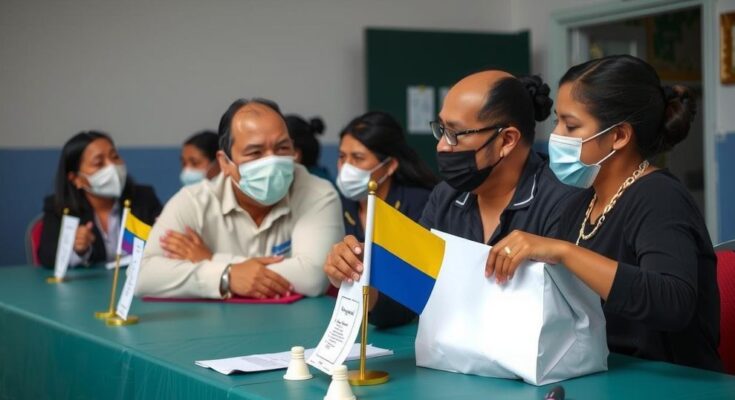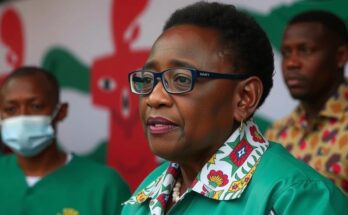On December 15, 2024, Venezuela will hold elections to select 30,000 communal peace judges as part of efforts to enhance grassroots democracy. Voters aged 15 and above will elect judges from a pool of 52,288 candidates across over 4,000 communal circuits. This initiative emphasizes local governance and community-led conflict resolution, reflecting the Venezuelan government’s aim to foster direct democracy.
On December 15, 2024, Venezuela is set to conduct local elections to appoint 30,000 so-called “communal peace judges,” a move aimed at fostering grassroots democracy throughout the nation. This election will take place across more than 4,000 communal circuits, encompassing 481 indigenous communities, allowing citizens aged 15 and above to participate. Voters will elect two or three peace judges per circuit from a pool of over 52,000 candidates, establishing a system that purports to integrate community voices into governance.
The election underscores the Venezuelan government’s commitment to enhance popular power and transform democracy into a more direct form, moving away from traditional representative systems. During a recent assembly with candidates in Caracas, President Nicolás Maduro declared that this initiative is a monumental step towards a future characterized by genuine grassroots democracy. He emphasized the importance of community involvement in resolving conflicts and promoting peaceful coexistence.
Prominent leaders and activists, including Minister of Communes Ángel Prado and organization vice president for the Socialist Party (PSUV), Pedro Infante, acknowledged the significance of these elections. They expressed a collective intent to radicalize participatory democracy as a reflection of historical movements that sought to engage citizens more deeply in governance. The newly elected judges will also receive training from judicial authorities to prepare them for their community roles, as outlined in the recently reformed “Organic Law of Communal Peace Justice.”
This reform broadens the responsibilities of peace judges to include mediating family disputes and local conflicts without resorting to formal legal proceedings. Their jurisdiction, however, excludes cases involving significant monetary value. The intent is to cultivate local leaders who understand community dynamics and needs, thereby fostering sustainable conflict resolution and governance at the communal level. The introduction of elected peace judges follows a series of community consultations that directly engaged citizens in determining localized projects with state funding.
As communities approach this important electoral event, significant efforts have been made regarding candidate selection and community engagement. Each candidate’s qualification undergoes rigorous scrutiny, including requirements for residency and social standing, ensuring transparency and accountability within the process.
The electoral initiative for selecting communal peace judges represents a strategic effort by the Venezuelan government to strengthen local governance and promote participatory democracy. This approach seeks to empower communities to resolve conflicts and manage local issues autonomously, diverging from traditional judicial systems that often prove inaccessible. By establishing a framework for grassroots participation, the government aims to enhance social cohesion and generate a model of governance responsive to the unique needs of diverse communities across Venezuela. This method also aligns with broader historical movements that advocate for direct democratic engagement.
The upcoming elections for communal peace judges in Venezuela signify a pivotal moment in the country’s journey towards deeper grassroots democracy. By facilitating direct community engagement in governance and conflict resolution, the initiative not only reshapes how justice is administered locally but also empowers citizens to play an active role in determining their socio-political landscape. The process reflects a commitment to transforming traditional democratic frameworks into a more participatory model, where local leaders are elected and trained to meet the specific needs of their communities.
Original Source: venezuelanalysis.com




